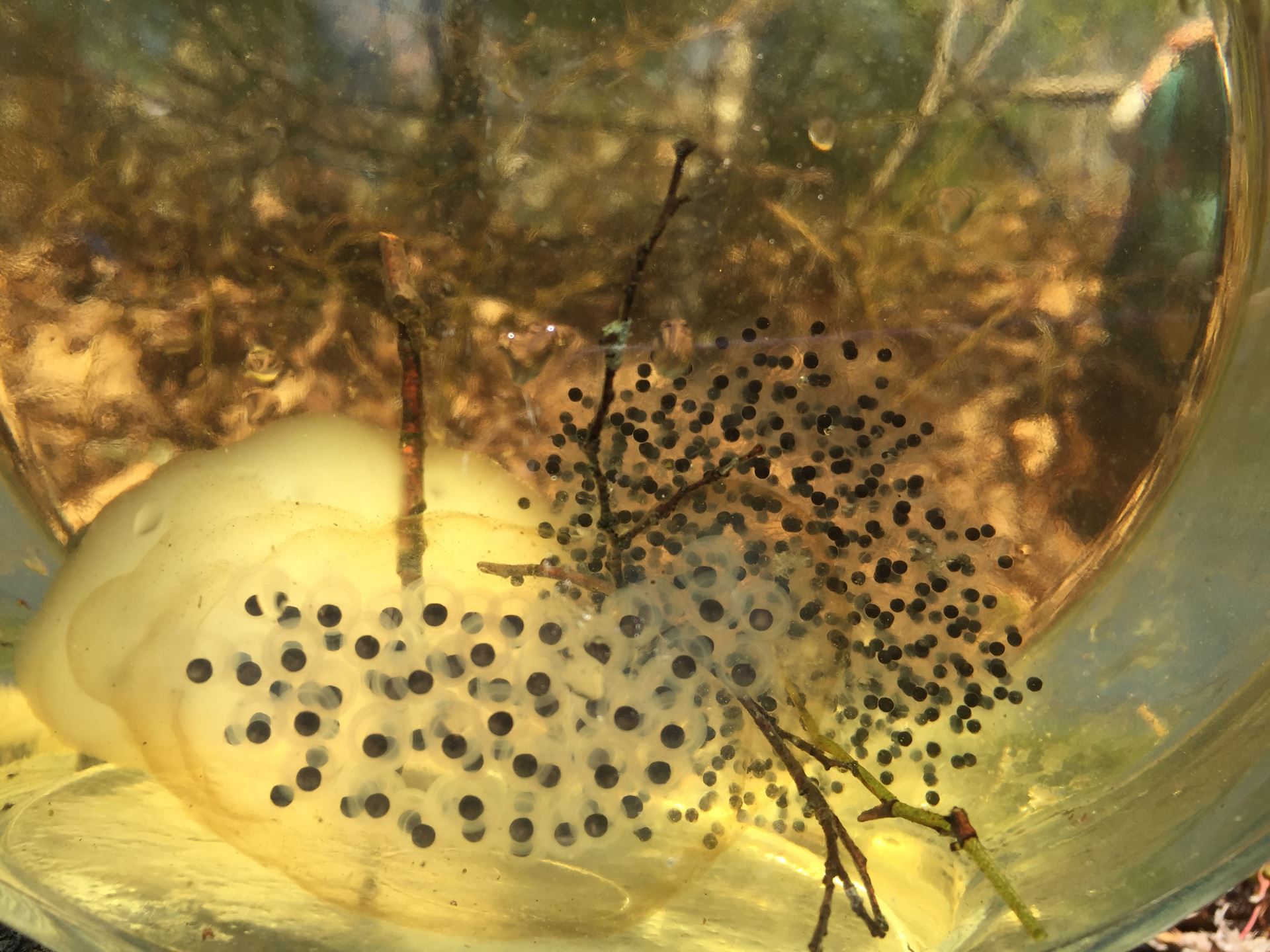 Biologist Nathan Mineo
Biologist Nathan Mineo
Did You Know...?
Do Eggs Know When to Hatch?
Written by Nathan Mineo
Reprinted from the 2010 Cape Ann Vernal Pond Team Newsletter
Photograph by Cheryl Briscoe
Did you know that some salamanders and frogs have the ability to delay or accelerate the time to hatch based on the risk of predation? In other words, if there is a predator present that eats eggs, the eggs of some amphibians will hatch early so not as many eggs are lost to the predator. Or, if there is a predator present that eats tadpoles and larva, hatching may be delayed, allowing the embryos to develop into larger, more robust hatchlings that are better able to avoid predation.
So how do the eggs know when to hatch? This is the question that many researchers have asked, and consequently studies have been conducted that attempt to answer this question. It really depends on the species of frog or salamander being studied, but basically the embryos inside the eggs can detect and respond to chemical cues. The embryos of some species can detect the chemicals released by the predators themselves, while those of other species detect the chemicals released by an injured egg that’s being eaten. Pretty cool, right?

Wait, there’s more! One species studied (a tree frog native to Oregon) could actually detect the chemical cues of both the predators themselves and injured eggs. Most species can only detect chemicals from one or the other, not both. So next time you see a leech on an egg mass in your favorite vernal pond, ask yourself if the embryos inside can detect the leech or the injured eggs the leech is eating…
Spotted salamander and Wood frog egg mass photograph by Victoria RolfSources: Sih, A. and R. D. Moore. 1993. Delayed hatching of salamander eggs in response to enhanced larval predation risk. Am. Nat. 142:947–960.
Annika L. Anderson and William D. Brown. 2009. Plasticity of Hatching in Green Frogs (Rana clamitans) to Both Egg and Tadpole Predators. Herpetologica 65:2, 207-213.
Chivers, D. P., J. M. Kiesecker, A. Marco, J. Devito, M. T. Anderson, and A. R. Blaustein. 2001. Predator-induced life history changes in amphibians: egg predation induces hatching. Oikos 92:135–142.